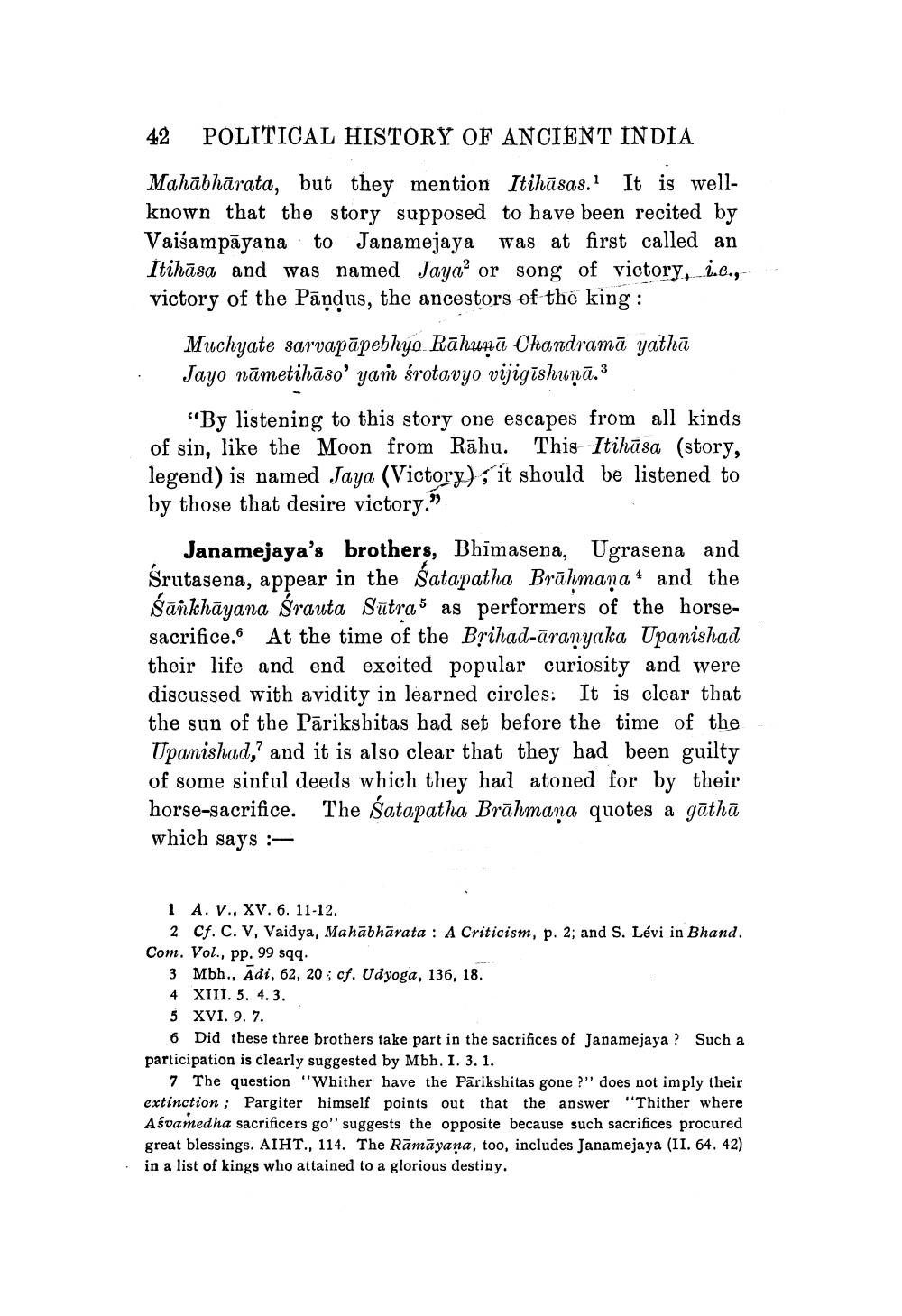________________
42 POLITICAL HISTORY OF ANCIENT INDIA
Mahabharata, but they mention Itihasas. It is wellknown that the story supposed to have been recited by Vaisampayana to Janamejaya was at first called an Itihasa and was named Jaya or song of victory, ie., victory of the Pandus, the ancestors of the king:
Muchyate sarvapāpebhyo Rāhuna Chandrama yathā Jayo nametihāso' yam śrotavyo vijigīshuņā.3
"By listening to this story one escapes from all kinds of sin, like the Moon from Rāhu. This Itihasa (story, legend) is named Jaya (Victory) it should be listened to by those that desire victory.".
4
Janamejaya's brothers, Bhimasena, Ugrasena and Śrutasena, appear in the Satapatha Brahmana and the Sankhayana Śrauta Sutras as performers of the horsesacrifice. At the time of the Brihad-aranyaka Upanishad their life and end excited popular curiosity and were discussed with avidity in learned circles. It is clear that the sun of the Parikshitas had set before the time of the Upanishad, and it is also clear that they had been guilty of some sinful deeds which they had atoned for by their horse-sacrifice. The Satapatha Brahmana quotes a gāthā which says:
1 A. V., XV. 6. 11-12.
2 Cf. C. V, Vaidya, Mahabharata: A Criticism, p. 2; and S. Lévi in Bhand. Com. Vol., pp. 99 sqq.
3 Mbh., Adi, 62, 20; cf. Udyoga, 136, 18.
4
XIII. 5. 4.3.
5 XVI. 9. 7.
6 Did these three brothers take part in the sacrifices of Janamejaya? Such a participation is clearly suggested by Mbh. I. 3. 1.
7 The question "Whither have the Parikshitas gone?" does not imply their extinction; Pargiter himself points out that the answer "Thither where Aśvamedha sacrificers go" suggests the opposite because such sacrifices procured great blessings. AIHT., 114. The Rāmāyaṇa, too, includes Janamejaya (II. 64. 42) in a list of kings who attained to a glorious destiny.




